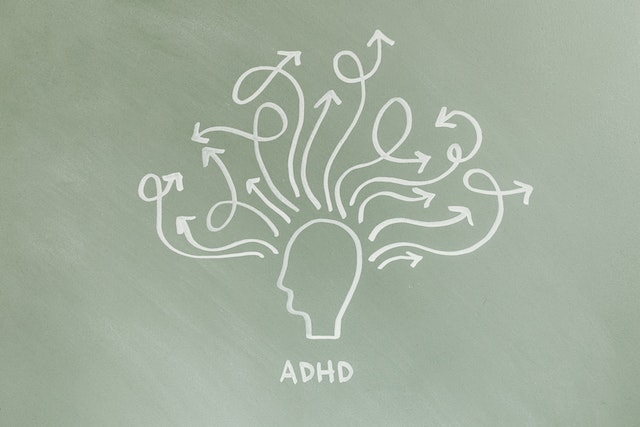This month of October marks Attention Deficit Hyperactivity Disorder (ADHD) Awareness Month. This is a condition that has impacted millions of people, including me and my family. However, there are still many adults walking around with undiagnosed ADHD. Untreated ADHD in adults has become so common and has made a serious impact on their lives. Let’s learn about what happens if ADHD is left untreated in adults, its signs and symptoms, and what can being undiagnosed lead to.
Why is ADHD not Taken Seriously?
Many people don’t seem to take ADHD as seriously as other mental disorders. There are plenty of preconceived notions about ADHD not being a real medical condition. According to one study in SSM Qual Res Health, some felt the stigma around ADHD is more serious than the actual symptoms. For example, when a person says that they have ADHD, most people will say that they’re just making it as an excuse for being lazy. Because of the stigma people face when they disclose their condition, they decide to hide their diagnosis.
I, myself, have been one of those people who sometimes don’t take it as seriously as other mental disorders. But since being diagnosed with it myself and having other family members with it, some undiagnosed and one diagnosed, I have seen that it is a real condition especially if left untreated. There are so many untreated ADHD in adults, leading them to be diagnosed with other mental illnesses. If we continue to sweep the condition under the rug as being nothing, this may prove to be a future problem for us.

Signs and Symptoms of Untreated ADHD in Adults
There are several signs and symptoms of untreated ADHD in adults that we must pay attention to. These all could vary between people. For example, this person might have stronger problems interrupting people when they’re talking, while the next person might have more serious problems concentrating on tasks at work. Some people like to pass these symptoms off as the person being immature, rude, or incompetent. That’s why people exhibiting the signs of ADHD are usually misdiagnosed as being depressed or having anxiety. Some other signs and symptoms of untreated ADHD in adults include:
- Having a quick temper.
- Mood swings.
- Miss deadlines.
- Poor time management.
- Impulsiveness.
- Restlessness.
- Difficulty multitasking.
What are the risks of Untreated ADHD?
If left untreated, ADHD can have a serious impact on a person’s life and their relationships. There are plenty of serious risks to think about. If you think you have untreated ADHD, consider these common risks that can have an impact on your life:
- Difficulty in relationships- One research study shows that most spouses of people with ADHD feel more neglected than spouses of people without ADHD. People with spouses who have this condition also experience other serious problems within their marriage.
- Job instability- Having untreated ADHD has led many to struggle to keep jobs. One 2016 study from J Abnormal Child Psychology suggests that people with untreated ADHD usually have trouble focusing on their tasks at work, leading them to get fired or laid off.
- Drug & alcohol misuse- Another risk of untreated ADHD involves our usage of drugs and alcohol. People with this condition are more than likely to misuse psychoactive substances and alcohol.
What can Undiagnosed ADHD lead to?
When you’re possibly exhibiting signs of ADHD and you’re undiagnosed with it, this could lead to many problems for you. Its symptoms have caused people to experience behavioral, vocational, academic, and social problems. People have had their educational careers become stalled, their career growth stifled, and their time management suffered. Being undiagnosed with ADHD, especially when it’s severe, could cause a person’s life to not function well.
Untreated ADHD in adults has become a common issue these days. Many don’t become diagnosed because they either don’t take the condition seriously enough or just don’t want to go to the doctor. But if you’re one of many dealing with untreated ADHD, now is the time to possibly see about it, especially if it’s causing you not to function. Talk to your doctor about a treatment plan based on your symptoms and what’s right for you.
Are you dealing with untreated ADHD? If so, how has it been affecting your life? Feel free to express your thoughts in the comments section below. As always, be sure to like or share this post with the next person you know dealing with this issue.

